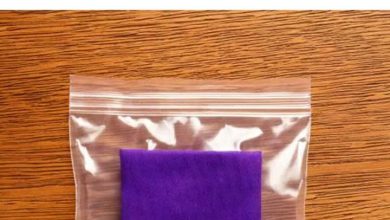Great ideas

Coughing is a natural and common way for your body to clear your throat and airways of things like mucus, irritants, or other particles. While many people use over-the-counter medicines, others prefer to find natural ways to ease their cough. This is often to avoid potential side effects or simply because they prefer a more natural approach. This article will explore several natural methods to help with cough symptoms. We will also talk about why it’s so important to know what’s causing your cough and how simple changes in your daily habits can help you heal.
ADVERTISEMENT
Finding the Root Cause of Your Cough
Before you can effectively treat a cough, you need to know why you have one. Coughs can be caused by many different things. Some common triggers include infections like the cold or flu, allergies, asthma, or even irritants in the air like smoke or pollution. Figuring out the main reason for your cough can help you choose the best natural remedy and even help prevent future coughs.
ADVERTISEMENT
Staying Hydrated: The Power of Drinking Fluids
One of the easiest and most effective things you can do to soothe a cough is to stay hydrated. When you drink fluids, they help thin out mucus, which makes it easier for your body to get rid of it. This also helps reduce irritation in your throat. Water, herbal teas, and broths are all great choices. Try to avoid drinks with caffeine or alcohol, as they can cause dehydration.
ADVERTISEMENT
Using a Humidifier to Soothe Your Airways
Dry air can make a cough much worse by irritating your throat and airways. Using a humidifier adds moisture to the air, which can help calm a dry cough and make it easier to breathe. This is especially helpful during colder months when indoor heating systems can make the air very dry.
Herbal Teas and Their Benefits
Many herbal teas have properties that can help with cough symptoms. Ginger tea, for example, can help with inflammation. Peppermint tea is good for clearing congestion. Chamomile tea is known for its calming effects, which can help you relax and get better sleep.
Honey: A Natural and Soothing Remedy
Honey has long been used as a natural cough remedy because it is both soothing and antibacterial. It can coat your throat, which helps lessen irritation and can even suppress the urge to cough. A spoonful of honey on its own or mixed into a warm tea can be especially helpful, particularly before you go to bed.
How Steam Can Help
Inhaling steam is another simple way to help loosen mucus and clear out congestion, which can make it easier to breathe and reduce how often you cough. You can also add a few drops of essential oils like eucalyptus or peppermint to the water for an extra boost. Just be careful to avoid burns from the hot steam.
Gargling with Salt Water
Gargling with warm salt water can help reduce inflammation in your throat and wash away any irritants or bacteria. This simple remedy can give you temporary relief from a sore throat and cough. Just mix about half a teaspoon of salt in a glass of warm water and gargle a few times a day for the best results.
Using Essential Oils
Certain essential oils, like eucalyptus, peppermint, and tea tree oil, have properties that can help with cough symptoms. You can use them in a diffuser, add them to a steam inhalation, or mix them with a carrier oil (like coconut oil) for a topical application. Remember to always dilute them properly to avoid irritating your skin.
What You Eat Matters
A healthy diet with plenty of vitamins and minerals can support your immune system and help you recover from a cough faster. Foods rich in vitamin C, like citrus fruits, and foods with anti-inflammatory properties, like leafy greens and nuts, can be very helpful. Some people also find that avoiding dairy and processed foods can help reduce mucus production.
Rest and Sleep for Recovery
Getting enough rest and sleep is crucial for recovering from any sickness, including those that cause a cough. When you sleep, your body works to repair itself and your immune system gets stronger, making it better at fighting off infections. Creating a comfortable sleep environment and sticking to a regular sleep schedule can greatly help your recovery.
When to See a Doctor
While natural remedies are often effective, it’s important to know when you need to see a doctor. You should seek medical advice if your cough “persists for more than a few weeks,” or if it comes with other symptoms like a high fever, chest pain, or if you are coughing up blood. In these cases, it’s important to see a healthcare professional to rule out more serious health issues.
Finding the Right Natural Approach for You
Natural remedies give you many different options for relieving a cough without needing medication. By figuring out the cause of your cough and trying a few different remedies, you can find the one that works best for you. Always listen to what your body is telling you, and remember to consult a doctor if your symptoms don’t get better or if they get worse.




